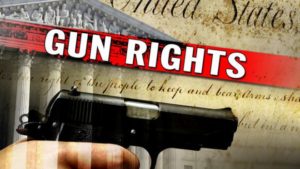Pennsylvania Pardon Lawyer
Many people want to have misdemeanor or felony convictions removed from their records. Criminal records can prevent people from getting jobs, and criminal records can affect other rights, such as the right to possess a firearm. In Pennsylvania, the law generally does not allow for an expungement of felony or misdemeanor convictions. For some misdemeanor offenses, a person may be able to obtain an order for limited access to seal or remove criminal record information from public access, meaning the prior record would not appear on background searches. However, expungements and orders for limited access do NOT restore gun rights. The only option is a pardon.
Pennsylvania Pardon Process
A pardon is basically the setting aside of a criminal conviction. If a person receives a pardon of a criminal conviction, the charge is basically treated as if it were dismissed. While you would think that a pardon would mean that the record is destroyed, but that is not how the process works. A pardon sets aside the conviction, meaning the person is not convicted. In order to destroy the records of the case, the person must go through the Pennsylvania expungement process. By expunging the pardoned charges,  the records of the incident will be destroyed.
the records of the incident will be destroyed.
A pardon normally restores rights or privileges that may have been taken as a result of the convictions. For example, convictions of felony offenses, some DUI offenses, and misdemeanor domestic violence crimes prohibit a person from possessing a firearm under both state and Federal laws. By having the convictions set aside via the pardon, the person can restore their constitutional right to possess a firearm. For more information about the Pennsylvania pardon process, click here.
Attorney Jason S. Dunkle has successfully assisted clients in submitting and obtaining pardons in Pennsylvania. For a free case evaluation, contact the experienced pardon attorneys at JD Law via email or at (814) 689-9139.
